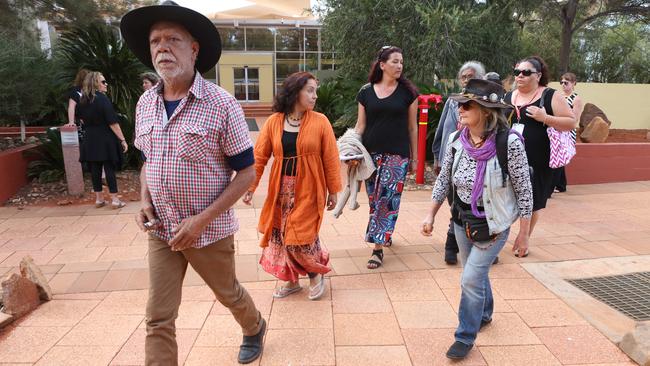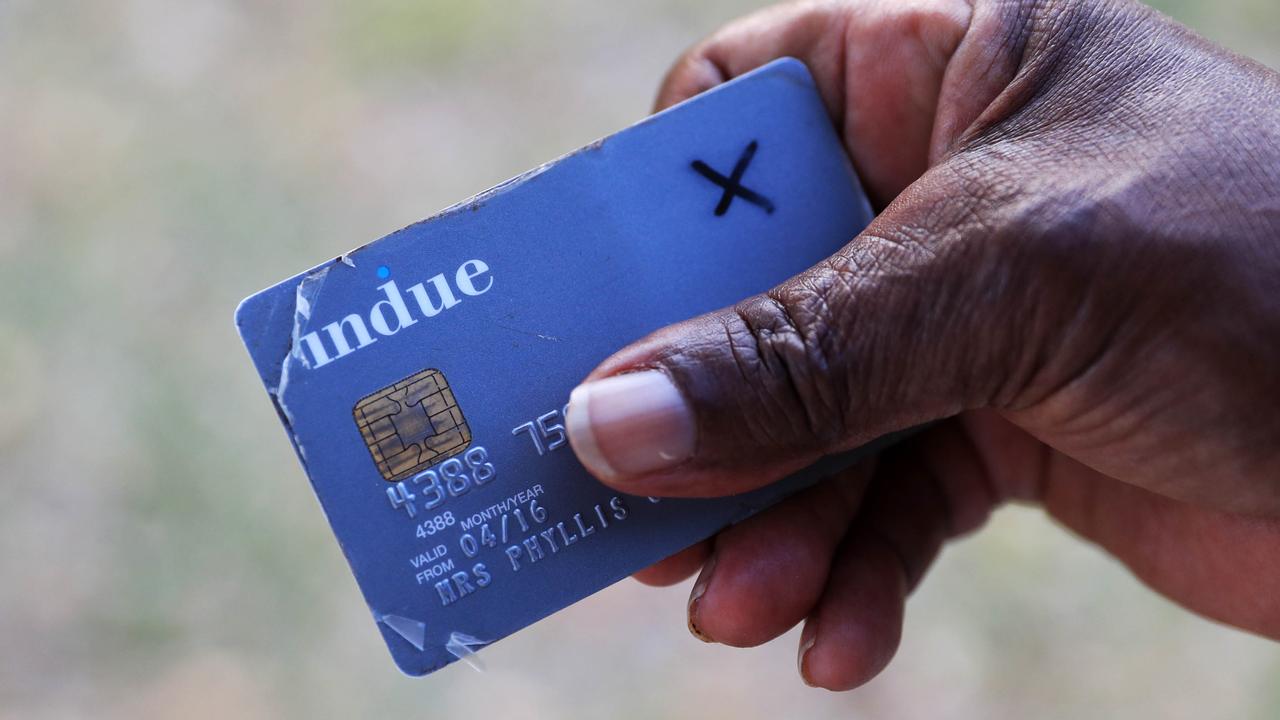Noel Pearson backs call for substance over symbols in indigenous referendum
Noel Pearson has backed voting down a referendum that gives only symbolic constitutional indigenous recognition.

Aboriginal leader Noel Pearson has backed the idea of voting down a referendum that gives only symbolic constitutional recognition of indigenous Australians, in a blow to supporters of a so-called “minimalist’’ change to the nation’s founding document.
The Cape York leader warns that politicians have been the chief proponents of purely symbolic change, which would deserve to fail if it were put to a vote.
In an article in The Australian Law Journal, Mr Pearson seeks to destroy the case for symbolic change by pointing to the few benefits for Aborigines from Kevin Rudd’s symbolic apology to the Stolen Generations.
If a referendum on constitutional recognition for indigenous people were limited to symbolism rather than substance, “the Australian people would most likely vote ‘no’,” he writes with co-author Shireen Morris. “That result would, in our view, be a deserved and just result.”
Their article, to be published in a special May edition of the ALJ devoted to indigenous Australians and the law, comes at a critical time in the push for constitutional recognition. The article emerged as debate over Mr Pearson’s proposed model for change caused a minor rift among delegates at the Constitutional Convention at Uluru yesterday.
Seven delegates from NSW and Victoria walked out in a dispute about the order in which four options should be considered.
The group, including members of the self-declared Muruwari Republic in western NSW and Melbourne delegates who have argued for Aboriginal sovereignty, accused organisers of running a “one-way conversation” rather than a dialogue.
“They gave us no options but Noel Pearson’s road map, and like Native Title was, this will be a failure,” Victorian Jenny Munro said outside the meeting rooms.
But as momentum builds for a recommendation from indigenous representatives, Referendum Council co-chairwoman Pat Anderson said it was “inevitable” there would be “some robust debate” and 243 members of the original 250-strong gathering remained committed to the process.
A small, vocal minority, including those who walked out, has agitated for a treaty to come before any other consideration at the convention and warned recognition in the Constitution would effectively erase their identity. Accompanying them as informal attendees are Tent Embassy members from Canberra, including former rugby league star David Peachey, who walked out. Traditional owner Alison Hunt, speaking for her Pitjantjatjara people as well as in her capacity as anUluru-Kata Tjuta National Park board member, warned dissidents they were being disrespectful to their hosts. “I’m very disappointed at some people walking out,” she said. “We’ve got to give the government a strong message by tomorrow about the Constitution. We have to be united. This is sacred land that you are standing on, talking on, and we ask visitors to please respect that and to get a message with us supported by the traditional owners of this land to the Prime Minister.’’
In the ALJ article, Mr Pearson and Ms Morris write that indigenous advocates made a mistake when they accepted Mr Rudd’s “symbolic apology for the Stolen Generations without any compensation for harms done”: “The politicians reaped the rewards for their seemingly generous gesture, and no compensation has yet been paid to indigenous people.”
They write that it would also be a mistake to adopt an “incrementalist” approach by backing a symbolic change as an achievable stepping stone to substantial recognition of indigenous Australians in future, since it would dissipate the political momentum.
However, if a symbolic referendum question were rejected, “the impetus for change would remain alive for later resolution”.
While strongly criticising purely symbolic change, they seek to consolidate indigenous support for a constitutionally recognised advisory body. They also reject an alternative scheme criticised as handing power to the High Court.
This scheme, which would insert a racial non-discrimination clause in the Constitution, is incapable of attracting bipartisan support and has therefore reached “a political dead end”, they write.
“Rather than empowering indigenous people to go to the High Court to challenge discriminatory laws already enacted, (a consultative body) would ensure indigenous involvement and participation at the start, when relevant laws and policies are being devised and enacted, hopefully preventing discrimination,” the two write.
“(It) thus presents a political, preventative and proactive approach, rather than a reactive and litigious approach.
“Political participation, in contrast to perpetual litigation, creates an increased sense of indigenous peoples as self-determining political actors ... an attractive and empowering prospect.”


